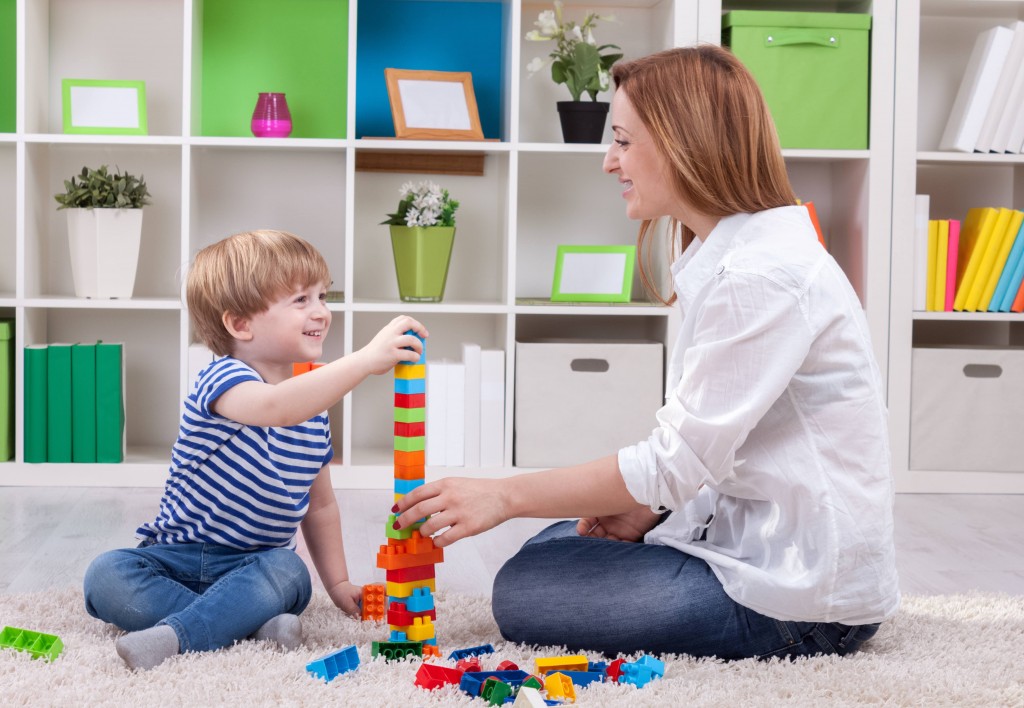When parents listen to therapy sessions and are present for therapy they are able to hear what their kids can do and say and turn it into situations and songs etc that work on that sound/syllable/word. When a new skill or sound combination emerges, you want your child to be bombarded by it. You want to find any and all ways to incorporate that sound into their repertoire so that they continue to use it. On the flip side, if you let it slide and don’t reinforce it, they won’t continue to use it and it won’t become a natural production.
If you are not present for therapy, your therapist should be giving you a copy of the treatment notes and/or giving you feedback on what your child is doing. By the same token as listed above for the parents that are present for therapy, take what you are learning and use it at home, incorporate it. Just because you aren’t there, doesn’t mean you can’t have the same outcome and use the same strategies. For me, I provide the parents with videos of new skills/words or oral motor exercises when they are not able to see it first hand – this way they can SEE what their child is doing and how to encourage the same skills/productions etc at home even when they are not there face to face.
- When a kid says the CV word “me” you can ask your child questions all day long where he/she would answer “me”!! Who likes ice cream? Who wants to go outside? Who needs a drink? ME! ME! ME! You can work on rhyming syllables to “me”….he, she, bee, tea, see, lee, etc.
- Sing songs where they fill in the missing word at the end of a phrase…..(Barney song) I love you, you love….(me!)….We’re a ha-PPY fami-LY….etc. or I’m bringing home my baBY bumble-BEE, Won’t my mom-MY BE so proud of ME!! etc.
- Always remember things should not come for free. Your child should be using words to earn/get things. Ask for “more” say “please”. No matter how basic the response it needs to be verbal so you can expand on it and ultimately build it into longer utterances (Ex. I want more please. I want to go outside. etc.)
Similarly, if your child starts making sounds or saying words at HOME, you should make your child’s therapist aware of it so that the therapist can reinforce it in therapy!
- Little Bee Articulation – great for vocabulary development as well
- Word Flips – reinforces CV, CVCV, and CVCVCV productions (ex. bee, boo, bye, tie, two, my, moo, key etc)
Once a child starts to talk, and understand that an ACTION (i.e. talking or signing) causes a REACTION (they get something), then they will understand the concept of communication and interaction which is the foundation you are building. If you do not require your child to talk to get something then you are teaching them that it is not necessary to talk to get something. Therefore, if your child isn’t talking you should look internally to see if you are doing the right thing to reinforce talking.
Bottom line: You cannot rely on your therapist to do all the work. Therapy – no matter how good your therapist is, is not going to change your child 2, 3, 4 days a week. As the parent, you have to take what your therapist is teaching both you and your child and incorporate it into your daily life – its a lifestyle change. Therapy is not just about teaching the child but parent education as well. If you have questions about what to do or how to elicit a response from your child – ask your therapist. They are there to help you and guide you as well as encourage you.
Focus on open communication and dialog in order to help your child communicate in multiple settings and across the board.

